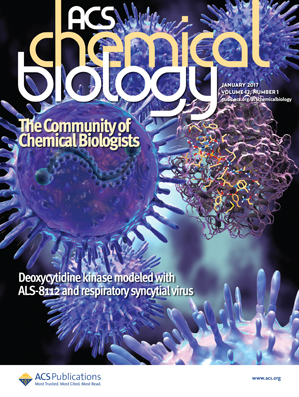Prognostic Efficacy of the Albumin-Bilirubin Score and Treatment Outcomes in Hepatocellular Carcinoma: A Large-Scale, Multi-Center Real-World Database Study
IF 3.8
2区 生物学
Q2 BIOCHEMISTRY & MOLECULAR BIOLOGY
引用次数: 0
Abstract
Introduction: Hepatocellular carcinoma (HCC) remains a leading cause of cancer-related mortality globally, with treatment outcomes closely tied to liver function. This study evaluates the prognostic utility of the Albumin-Bilirubin (ALBI) score compared to the traditional Child-Pugh (CP) grading, leveraging real-world evidence from a large-scale, multi-center database. Methods: The Liver Cancer IN Korea (LINK) research network, a multi-center initiative, retrospectively collected electronic medical records from three academic hospitals in South Korea, encompassing HCC patients diagnosed between 2015 and 2020. Inclusion criteria mandated at least one HCC treatment and excluded patients with other primary cancer diagnoses. The study followed patients until death, the last visit, or June 2021, employing standardized data processing and rule-based algorithms for data consistency. The prognostic efficacy of ALBI scores and CP scores was compared through time-dependent receiver operating characteristic (ROC) curves and the inverse probability censoring weighting method. Results: From 25,248 newly diagnosed patients, 10,297 were included, with 65.82% having hepatitis B etiology and a median follow-up of 27.49 months. Patients’ classification by modified ALBI (mALBI) grade at diagnosis revealed: grade 1 (48.87%), 2a (20.50%), 2b (24.54%), and 3 (5.17%), with a minimal percentage missing (0.92%). Transarterial therapy (54.07%) and tyrosine kinase inhibitors (84.14% as the first-line systemic therapy) were predominant treatments. The ALBI score demonstrated greater prognostic efficacy than the CP score in long-term outcomes, with time-dependent area under the ROC curve analysis showing a score of 0.71 for ALBI versus 0.67 for CP at 60 months. Furthermore, higher mALBI grades were significantly associated with poorer survival outcomes, as indicated by both univariate and multivariate Cox proportional regression model analyses (p < 0.001). Conclusions: The study confirmed the ALBI score’s superior prognostic ability over the CP score, especially evident in long-term outcomes, suggesting a shift towards more nuanced liver function assessment tools in real-world clinical practice.肝细胞癌白蛋白-胆红素评分的预后效果和治疗结果:一项大规模、多中心真实世界数据库研究
简介肝细胞癌(HCC)仍然是全球癌症相关死亡的主要原因,其治疗效果与肝功能密切相关。本研究评估了白蛋白-胆红素(ALBI)评分与传统的Child-Pugh(CP)分级相比的预后效用,并利用了来自大规模多中心数据库的实际证据:韩国肝癌(LINK)研究网络是一项多中心计划,它回顾性地收集了韩国三家学术医院的电子病历,涵盖了2015年至2020年间确诊的HCC患者。纳入标准规定至少接受过一次 HCC 治疗,并排除了诊断为其他原发性癌症的患者。研究采用标准化的数据处理和基于规则的算法来保证数据的一致性,对患者进行随访,直至死亡、最后一次就诊或 2021 年 6 月。通过与时间相关的接收者操作特征曲线(ROC)和逆概率删减加权法比较了ALBI评分和CP评分的预后效果:从25248名新确诊患者中纳入了10297名患者,其中65.82%为乙型肝炎病因,中位随访时间为27.49个月。诊断时按改良 ALBI(mALBI)分级对患者进行的分类显示:1 级(48.87%)、2a 级(20.50%)、2b 级(24.54%)和 3 级(5.17%),缺失比例极低(0.92%)。经动脉治疗(54.07%)和酪氨酸激酶抑制剂(84.14%作为一线系统治疗)是最主要的治疗方法。在长期预后方面,ALBI评分比CP评分显示出更大的预后效果,时间依赖性ROC曲线下面积分析显示,在60个月时,ALBI评分为0.71,CP评分为0.67。此外,单变量和多变量考克斯比例回归模型分析表明,mALBI分级越高,生存预后越差(p < 0.001):该研究证实,ALBI评分的预后能力优于CP评分,尤其是在长期预后方面。
本文章由计算机程序翻译,如有差异,请以英文原文为准。
求助全文
约1分钟内获得全文
求助全文
来源期刊

ACS Chemical Biology
生物-生化与分子生物学
CiteScore
7.50
自引率
5.00%
发文量
353
审稿时长
3.3 months
期刊介绍:
ACS Chemical Biology provides an international forum for the rapid communication of research that broadly embraces the interface between chemistry and biology.
The journal also serves as a forum to facilitate the communication between biologists and chemists that will translate into new research opportunities and discoveries. Results will be published in which molecular reasoning has been used to probe questions through in vitro investigations, cell biological methods, or organismic studies.
We welcome mechanistic studies on proteins, nucleic acids, sugars, lipids, and nonbiological polymers. The journal serves a large scientific community, exploring cellular function from both chemical and biological perspectives. It is understood that submitted work is based upon original results and has not been published previously.
 求助内容:
求助内容: 应助结果提醒方式:
应助结果提醒方式:


